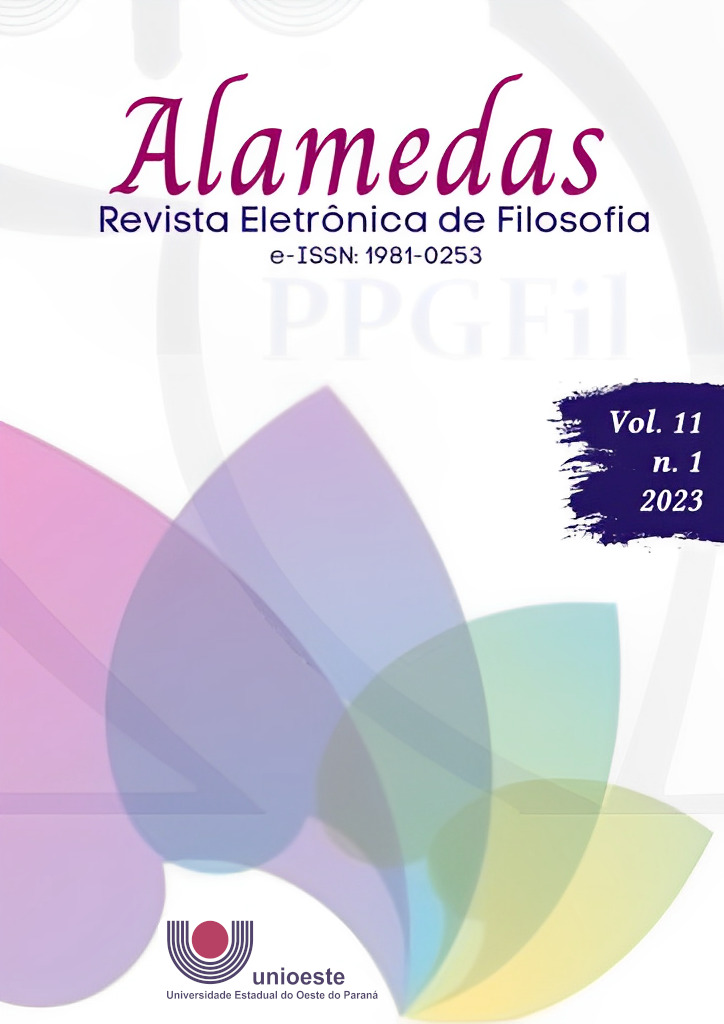Eichmann
o paradigma dos conceitos de ‘banalidade do mal’ e ‘vazio de pensamento’ em Arendt
DOI:
https://doi.org/10.48075/ra.v11i1.30846Abstract
This article aims to understand the problem raised by Arendt about the concepts of 'emptiness of thought’ and ‘banality of evil’, which has the figure of Eichmann as a background from his trial in 1961. Along this path, it is asked: how can the emptiness of thought, so characteristic of Eichmann and so many others, be a facilitator of mass decisions taken in the face of a fascist ideology? Given this, it is clear that the concept of ‘emptiness of thought’, which is characteristic not only of Eichmann, but of many who supported the Nazi movement, even without being convinced of it, is the source of evil, which is seen there from banal way. In order to arrive at this understanding, a bibliographical review of Arendt's works is carried out, as well as other works by commentators.
Keywords: Hannah Arendt; Eichman; Emptiness of thought; Banality of evil;
Downloads
Published
How to Cite
Issue
Section
License
Copyright (c) 2023 Alamedas

This work is licensed under a Creative Commons Attribution-NonCommercial-ShareAlike 4.0 International License.
Aviso de Direito Autoral Creative Commons
Política para Periódicos de Acesso Livre
Autores que publicam nesta revista concordam com os seguintes termos:
1. Autores mantém os direitos autorais e concedem à revista o direito de primeira publicação, com o trabalho simultaneamente licenciado sob a Licença Creative Commons Attribution que permite o compartilhamento do trabalho com reconhecimento da autoria e publicação inicial nesta revista.2. Autores têm autorização para assumir contratos adicionais separadamente, para distribuição não-exclusiva da versão do trabalho publicada nesta revista (ex.: publicar em repositório institucional ou como capítulo de livro), com reconhecimento de autoria e publicação inicial nesta revista.
3. Autores têm permissão e são estimulados a publicar e distribuir seu trabalho online (ex.: em repositórios institucionais ou na sua página pessoal) a qualquer ponto antes ou durante o processo editorial, já que isso pode gerar alterações produtivas, bem como aumentar o impacto e a citação do trabalho publicado (Veja O Efeito do Acesso Livre).
Licença Creative Commons
Esta obra está licenciada com uma Licença Creative Commons Atribuição-NãoComercial-CompartilhaIgual 4.0 Internacional, o que permite compartilhar, copiar, distribuir, exibir, reproduzir, a totalidade ou partes desde que não tenha objetivo comercial e sejam citados os autores e a fonte.


